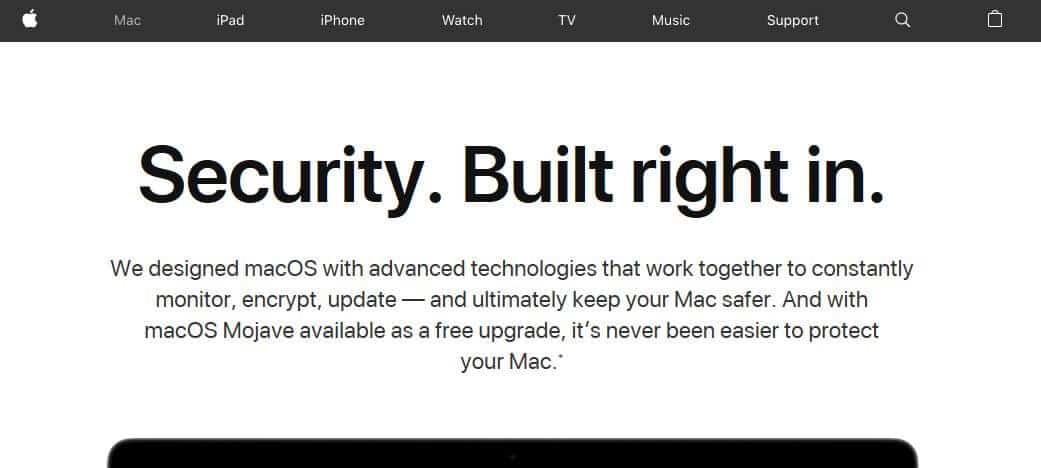There are several steps you can take to get rid of a virus on an infected Mac computer. Here's a guide with methods and advice for every Mac user. Sep 13, 2007 A: Answer: A: Hi applejin, there are no known viruses that attack Mac OS X. So virus protection is not necessary. Use Spotlight to search for anything named AV or AntiVirus on your disk. My suggestion, if you plan to run an AV program would be ClamXav a mac friendly freeware app that is very stable with Tiger. May 27, 2015 That, my friends, is a list of 30 potentially bad things thatyou guessed it, were found on my Mac while I was running a test virus scan, one of which is a Windows virus. How to Remove a Virus on MacBook Pro. If you think you might have a virus on your computer, don’t worry. It can be unexpected and alarming but there is usually a way to get rid of it safely and quickly. It’s good to know the signs and symptoms of a virus so you can remove it as soon as possible once on your computer.
An Apple Macintosh computer can get a virus or malware infection, so the short answer to the question is Yes. However, it's less likely for an Apple Macintosh computer to be infected compared to a MicrosoftWindows computer.
Note/cdn.vox-cdn.com/uploads/chorus_asset/file/19715060/618595354.jpg.jpg)
The term 'virus' and 'malware' are often used interchangeably. For the sake of simplicity, 'virus' will be used on this page and refers to either a virus or malware.
Several examples of viruses that have infected Apple Macintosh computers include the following.
- Flashback malware - Infected over 600,000 Apple computers in April 2012; designed to steal user's personal information, including account login credentials.
- OSX/KitM.A virus - Infected a small number of Apple computers in May 2013; designed to take screenshots of a user's desktop and upload to one of several websites.
- OSX.PROTON - Infected thousands of Apple computers in 2017; designed to steal user's account credentials by accessing the macOS Keychain app.
- OSX/MaMi - Infected several thousand or more Apple computers in January 2018; designed to allow a person to view a computer's Internet traffic, also called 'snooping.'
In 2015, the senior e-threat analyst at Bitdefender, Bogdan Botezatu, was quoted as saying 'Mac OS X software has more high-risk vulnerabilities than all versions of Windows put together.' Despite that statement and apparent fact, Mac computers are still infected by viruses much less often than Windows computers. Below are some of the reasons why Apple Macintosh computers do not have as many viruses as Windows computers:
- Beginning with macOS X in March 2001, Macintosh operating systems are built on 'Darwin,' a fork of the BSDkernel.
- Most of the computer virus writers are more familiar with the IBM platform and Microsoft Windows, which means it's easier for them create a virus for that platform.
- Many of the tools, scripts, and code used to create viruses or other malware are designed for Microsoft Windows.
- Many of the targets of viruses are governments and businesses, with an aim to either steal information, money, or create havoc. The majority of computers used by government agencies and businesses have the Windows operating system, resulting in most viruses being targeted towards Windows computers, instead of Macs.
 Note
NoteIf you are running a virtual PC on your Apple Macintosh or Windows in Bootcamp, because it is emulating Microsoft Windows, it can become infected with Windows viruses.

Software and plug-in threats
Although the Apple OS is more secure than many versions of Windows, additional software, plug-ins, and add-ons that connect to the Internet can introduce security vulnerabilities. The most common ways to attack a Mac computer is through a third-party browser and browser plugins, like Adobe Reader, Flash, and Java. Today, most Mac users have these plugins installed and enabled on the computer, and, in doing so, compromise the overall security of the system.
I Think I Downloaded A Virus On My Mac Computer
Additional security threats
I Think I Downloaded A Virus On My Mac Without
Although a Mac is less susceptible to viruses, Mac users can still be the victims of trojan horses, phishing scams, and online fraud. If you are a Mac computer user, we still recommend keeping informed about how to keep safe while online. There is no such thing as a 100% safe computer. Mac, Windows, and even Linux computers are all capable of being infected with a virus or other malware.
Additional information
- See our malware and virus definitions for further information and related links.